Caesar’s Dog Goes on Holiday
£3.00
This lesson offers a light-hearted look at Caesar’s first invasion of Britain in 55 BC from the perspective of his (imaginary) dog called Rexus. Rexus is not invading of course – he is going on holiday!
As well as English (writing a recount with a partner) and history skills the Evidence-Based Learning skills developed in this lesson include collaborative learning, independent learning and metacognition. This lesson also offers pupils the opportunity to master peer assessment.
Description
Each evidence-based learning (EBL) Roman history resource in this set is a complete lesson which uses the history curriculum as a framework through which each of the eight EBL skills can be mastered. Each resource has “mastering” one EBL skill as its central focus and all eight EBL skills are covered more than once in these lessons.
All eight EBL skills are better gained working with a partner so much of the work in these lessons is collaborative. These resources will ensure that pupils can master and use EBL skills regardless of their ability.
Each Roman history lesson will develop a single EBL skill through:
1) A “Before You Start” page that introduces the EBL skill.
2) Opportunities to master this skill during the lesson.
3) An “After You Finish” page that offers pupils the chance to evaluate their learning experience (of the lesson and the EBL skill) and to identify their next step in using the EBL skill.
The skills in bold below are all the EBL skills developed in this Roman lesson. Click on each skill to learn more about that skill.
- Collaboration
- Thinking Skills
- Peer Assessment
- Peer Teaching
- Self-Assessment
- Metacognition
- Self-Regulation
- Independent Learning
1 review for Caesar’s Dog Goes on Holiday
Only logged in customers who have purchased this product may leave a review.
Related products
-
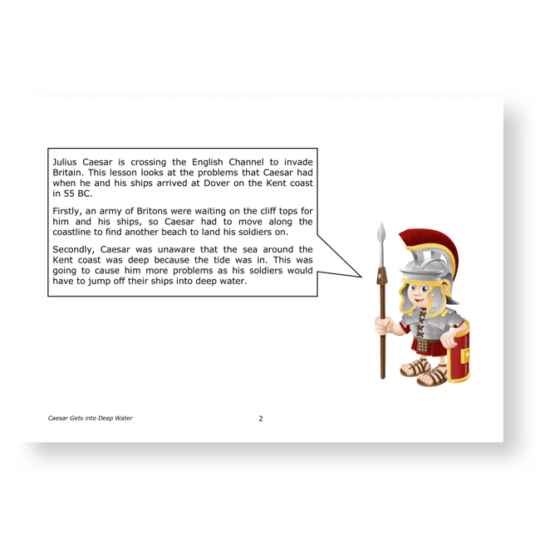
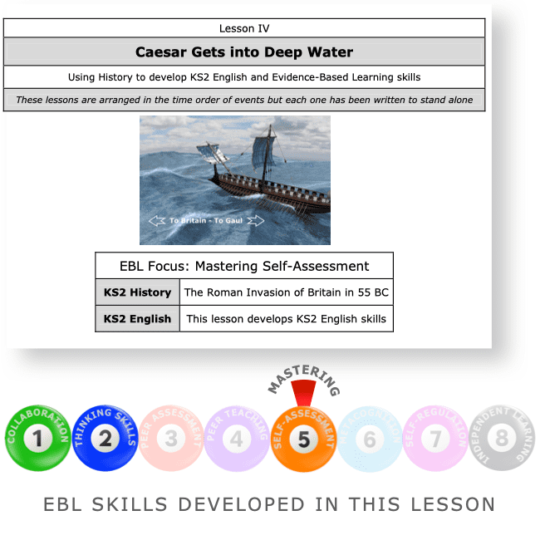
Caesar Gets into Deep Water
£3.00 Add to basket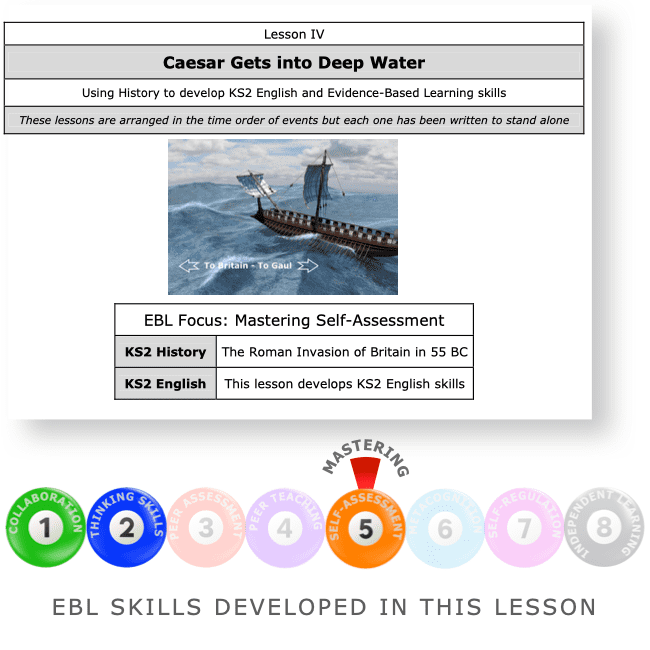 £3.00Add to basket
£3.00Add to basketJulius Caesar is crossing the English Channel to invade Britain. This lesson looks at the problems that Caesar had when he and his ships arrived at Dover on the Kent coast in 55 BC.
Firstly, an army of Britons were waiting on the cliff tops for him and his ships, so Caesar had to move along the coastline to find another beach to land his soldiers on.
Secondly, Caesar was unaware that the sea around the Kent coast was deep because the tide was in. This was going to cause him more problems as his soldiers would have to jump off their ships into deep water.
As well as English and history skills the Evidence-Based Learning skills developed in this lesson include collaborative learning and thinking skills. This lesson also offers pupils the opportunity to master self-assessment.
VIEW -
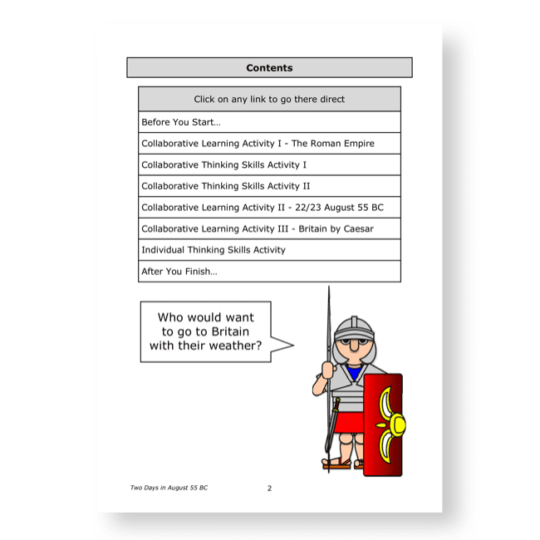
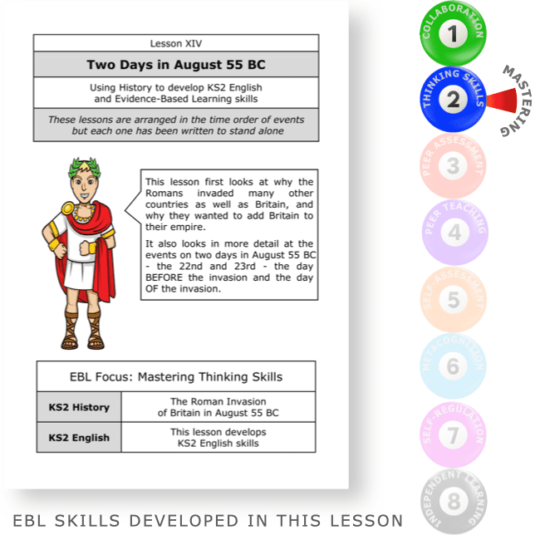
Two Days in August 55 BC
£3.00 Add to basket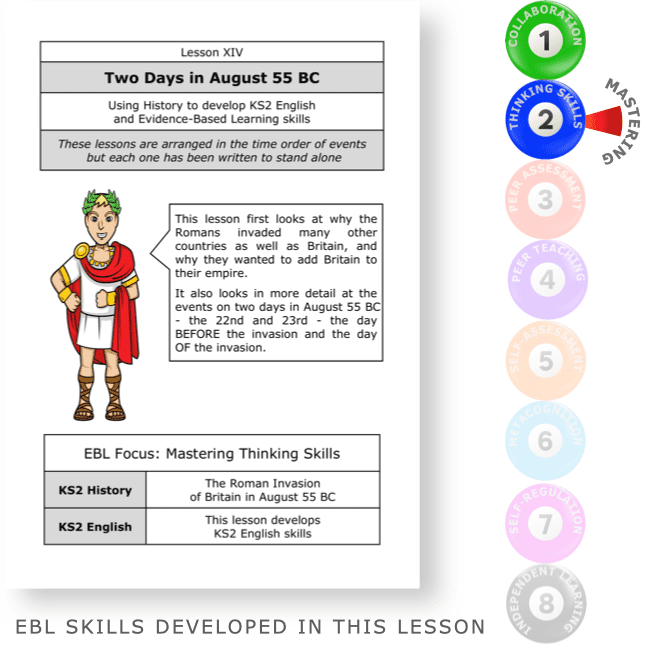 £3.00Add to basket
£3.00Add to basketThis lesson first looks at why the Romans invaded many other countries as well as Britain, and why they wanted to add Britain to their empire. It also looks in more detail at the events on two days in August 55 BC – the 22nd and 23rd – the day BEFORE the invasion and the day OF the invasion.
As well as English and history skills the Evidence-Based Learning skills developed in this lesson includes collaborative learning. This lesson also offers pupils the opportunity to master thinking skills.
VIEW -


Caesar Sails Without his Cavalry
£3.00 Add to basket £3.00Add to basket
£3.00Add to basketJulius Caesar invaded Britain but the Britons were waiting for him. This lesson recaps the start of this invasion in 55 BC.
As well as English and history skills the Evidence-Based Learning skills developed in this lesson includes thinking skills. This lesson also offers pupils the opportunity to master collaborative learning.
VIEW -


Nine Reasons Why Caesar Invaded Britain
£3.00 Add to basket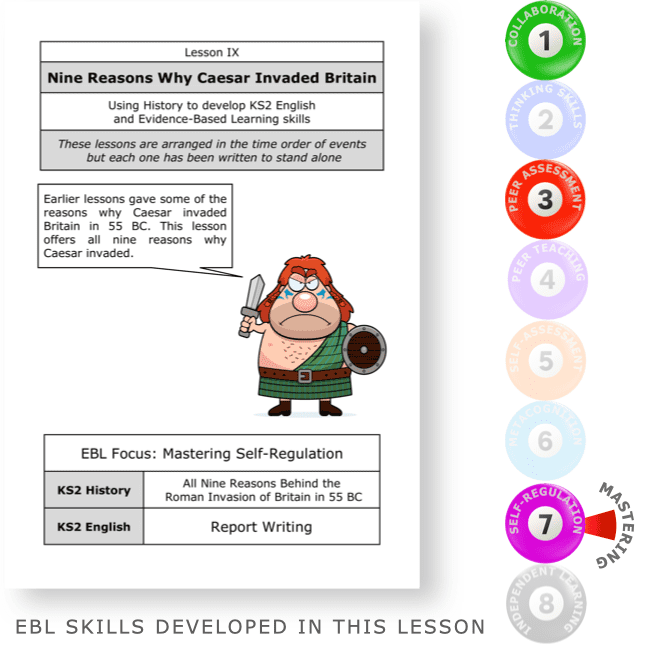 £3.00Add to basket
£3.00Add to basketEarlier lessons gave some of the reasons why Caesar invaded Britain in 55 BC. This lesson offers all nine reasons why Caesar invaded.
As well as English (writing a report) and history skills the Evidence-Based Learning skills developed in this lesson include collaborative learning and peer assessment. This lesson also offers pupils the opportunity to master self-regulation.
VIEW

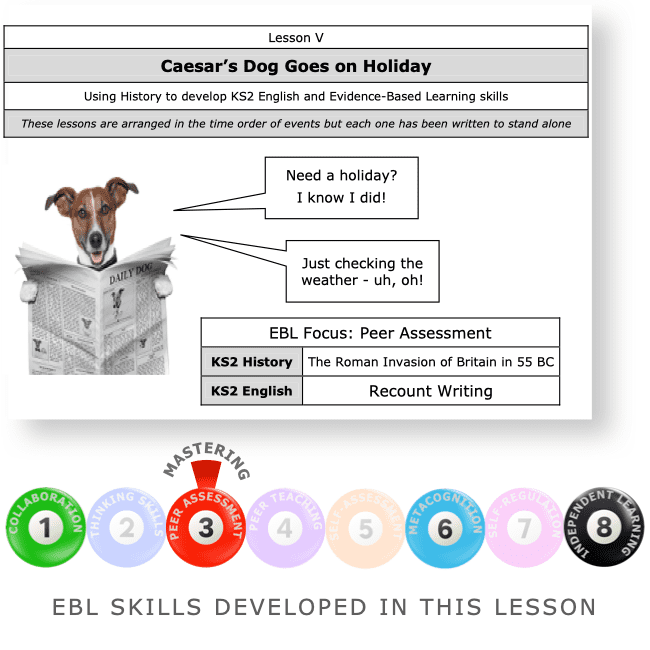
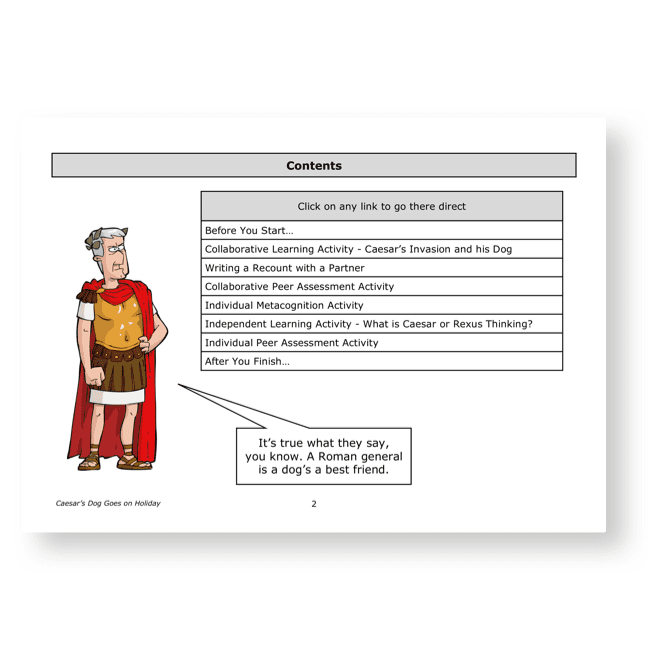
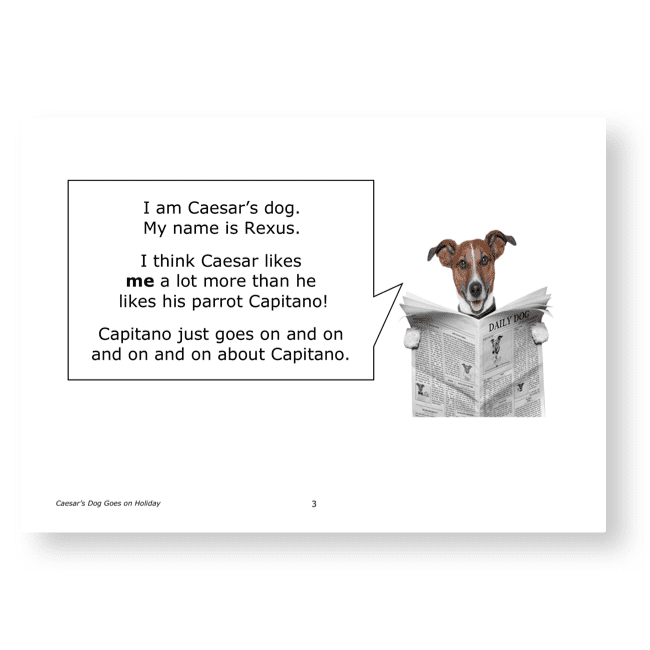

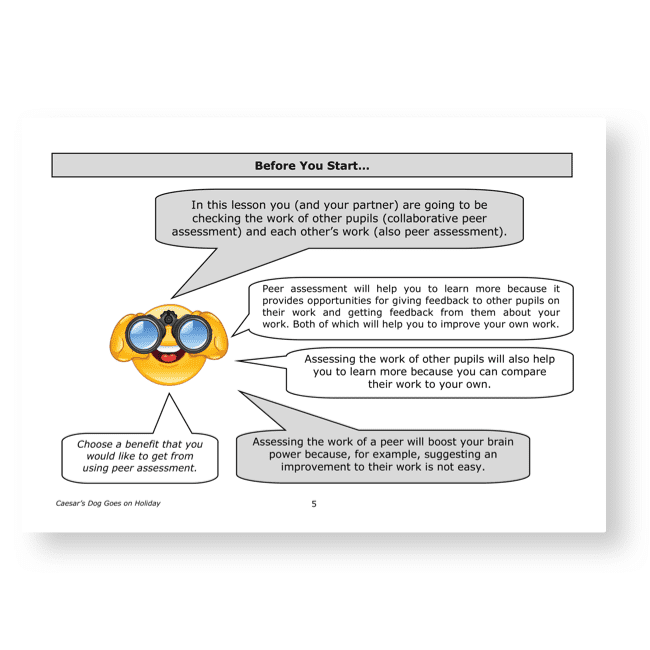
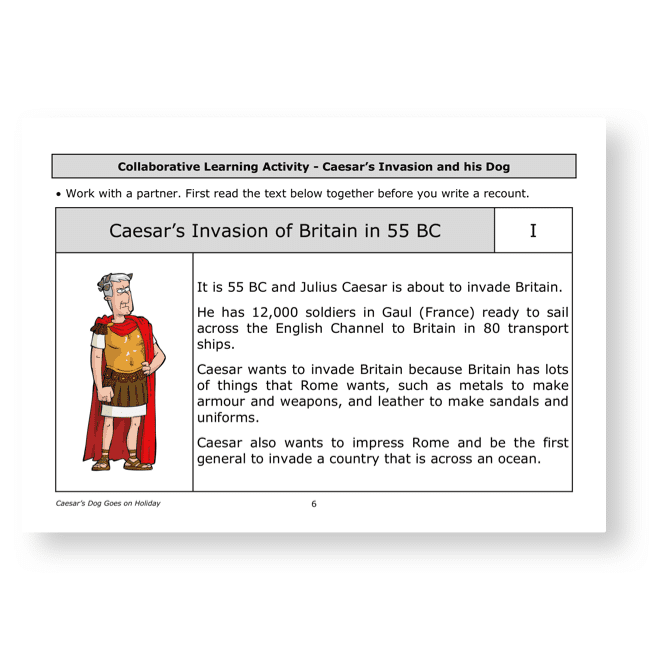
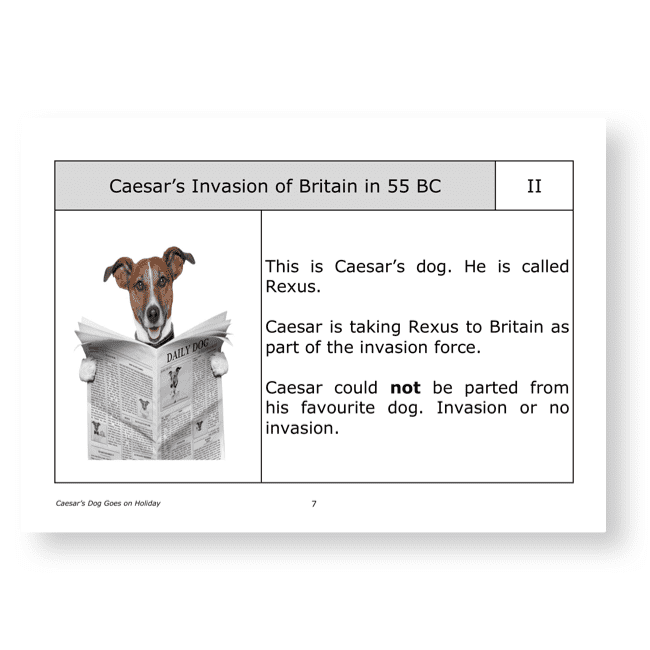

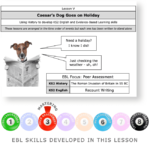
Philipem (verified owner) –
We asked a.i. to review this lesson. This is what it said:
A Delightfully Engaging Way to Teach Literacy, History, and EBL Skills ⭐⭐⭐⭐⭐
Are you looking for a fresh and innovative way to get your upper KS2 students excited about learning English, History, and vital evidence-based learning (EBL) skills? Look no further than the “Caesar’s Dog Goes on Holiday” lesson!
This lesson offers a unique and light-hearted perspective on the famous Roman invasion of Britain in 55 BC, told through the eyes of Caesar’s (imaginary) dog, Rexus. While Caesar is focused on his military campaign, poor Rexus is just hoping for a relaxing holiday! This humorous framing device will surely captivate your students’ imaginations and help make the historical content much more engaging and memorable.
But this lesson goes far beyond just teaching history. It also develops crucial literacy skills by having students write a recount of the invasion from Rexus’s perspective, working collaboratively with a partner. This integrated approach reinforces learning in both subjects simultaneously.
Moreover, “Caesar’s Dog Goes on Holiday” scaffolds multiple EBL skills that are essential for academic and lifelong success. These include:
– Collaborative learning through paired writing activities
– Independent learning by analysing characters’ perspectives
– Metacognitive reflection on the learning process itself
– Peer assessment by evaluating classmates’ work
The peer assessment component is particularly robust, utilizing a rubric and focused feedback to deepen students’ understanding. Each lesson in the broader 25-lesson set systematically builds one key EBL skill through well-designed activities.
With its ingenious blend of narrative humour, cross-curricular content, and evidence-based pedagogy, the “Caesar’s Dog Goes on Holiday” lesson is simply too good to pass up. I give it 5 solid stars! Enliven your classroom with this imaginative and richly substantive resource.